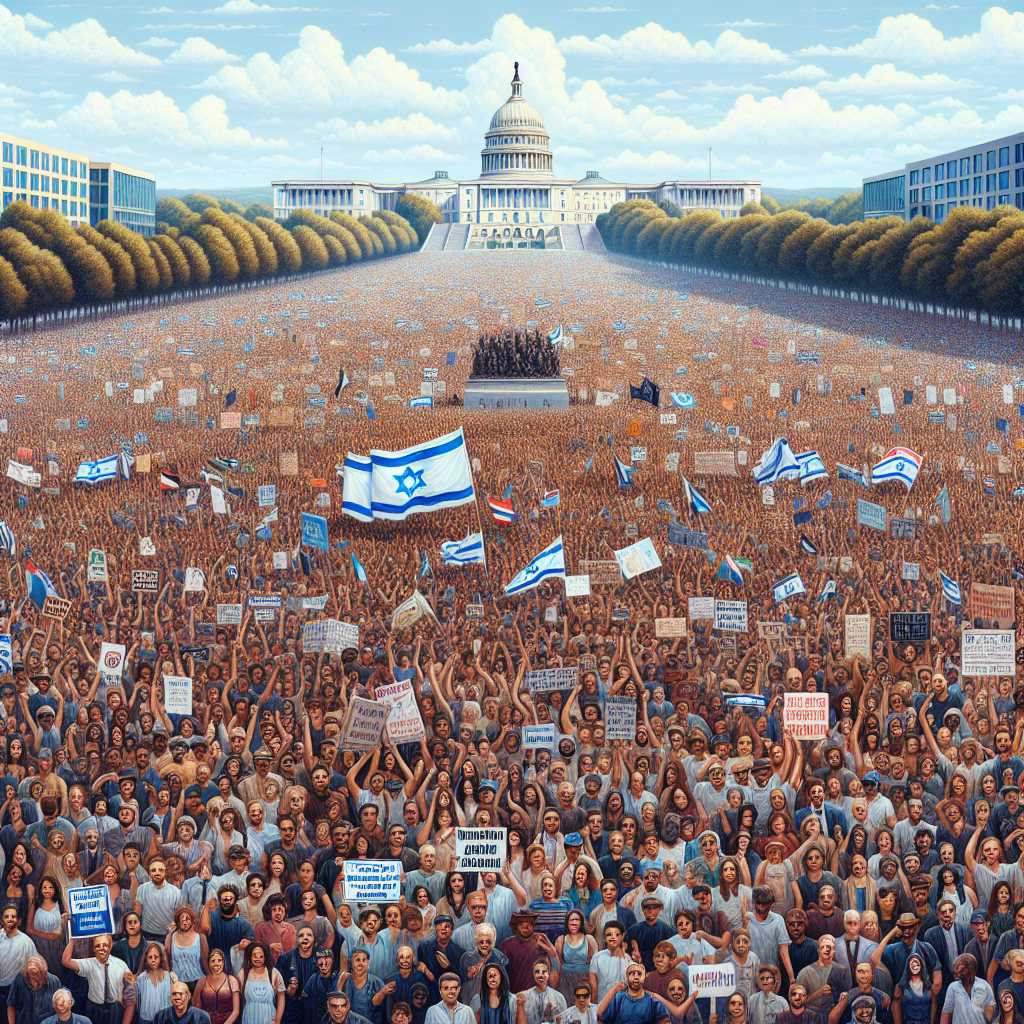In a monumental display of unity and resilience, tens of thousands of pro-Israel supporters flooded the National Mall in Washington, D.C., for the March for Israel Rally. The demonstration, an unequivocal statement against the surge of antisemitism and a clarion call for the release of hostages held by Hamas, was a powerful testament to solidarity. The Jewish Federations of North America and the Conference of Presidents of Major American Jewish Organizations orchestrated this potent gathering amidst the echoes of a recent deadly attack by Hamas which inflicted over 1,200 Israeli casualties and the harrowing capture of over 200 individuals.
The National Mall, typically a tapestry of leisurely strolls and tourist snapshots, transformed into a sea of Israeli flags and heartfelt placards. Attendees from far and wide, including substantial numbers from cities like Philadelphia to distant shores in Canada, convened with a shared purpose. Among the throng were Adam Halioua and Jack Benaim from Toronto, who radiated safety and pride, reflecting the sentiments of many present. The pre-show event for students and the main rally spanned the afternoon, with the U.S. Capitol lending a poignant backdrop to a scene punctuated by musicians' melodies and impassioned speeches from a kaleidoscope of public figures.
The rally was not just a moment of advocacy but also a celebration of Jewish identity, with the vibrancy of youth front and center. Signs bearing messages such as "Make Gaza Flat Again" were held aloft, indicative of the diverse perspectives within the crowd. This demonstration of support was juxtaposed against a backdrop of recent pro-Palestinian protests, highlighting the complexity and polarization surrounding the Israeli-Gaza conflict.
Israeli President Isaac Herzog's remote address to the rally attendees resonated with gratitude, capturing the collective ambition towards reconstruction and healing in the region. The event also served as a platform for powerful voices such as CNN's Van Jones and Senate Majority Leader Charles E. Schumer, reaffirming unwavering support for Israel while navigating the sensitive dynamics of calls for a cease-fire.
Security, though prominent, did not overshadow the spirit of the rally. It reflected the extensive preparations undertaken by law enforcement, including U.S. Park Police and the National Guard, ensuring a safe space for expression amidst heightened alert by the Department of Homeland Security. This prudent orchestration of safety measures underscored the gravity of the rally's cause and the determination of its participants.
As the voices of the rally resonated through the capital, Rachel Goldberg's harrowing narrative of her son's abduction by Hamas militants struck a visceral chord, underscoring the immediacy of the hostages' plight. Educational institutions like Yeshiva University stood in solidarity, with over 2,500 students joining the monumental assembly, a gesture that spoke volumes of the community's resolve.
This potent demonstration on the National Mall, a mosaic of hope, defiance, and profound camaraderie, was not just a momentary blip in the news cycle. It was a stark reminder of the enduring spirit of a community standing firm against the face of adversity, a clarion call that reverberated beyond the boundaries of Washington, D.C., and into the heart of a global conversation on peace, security, and human dignity.

